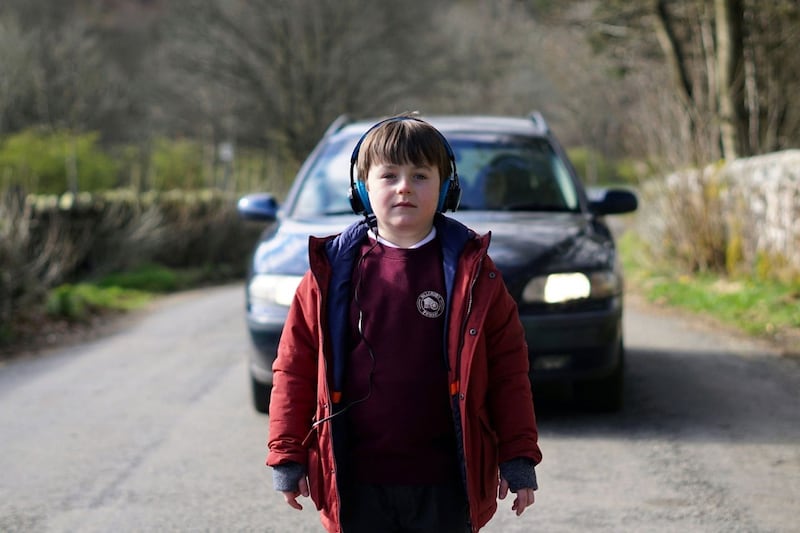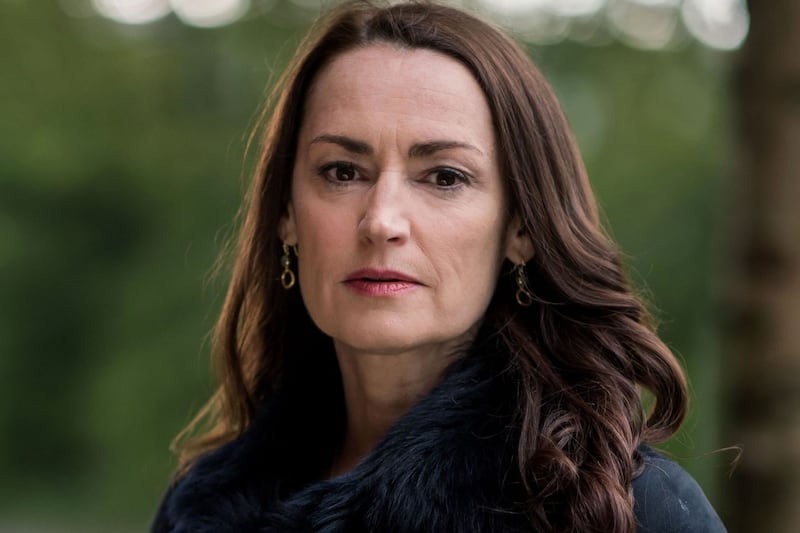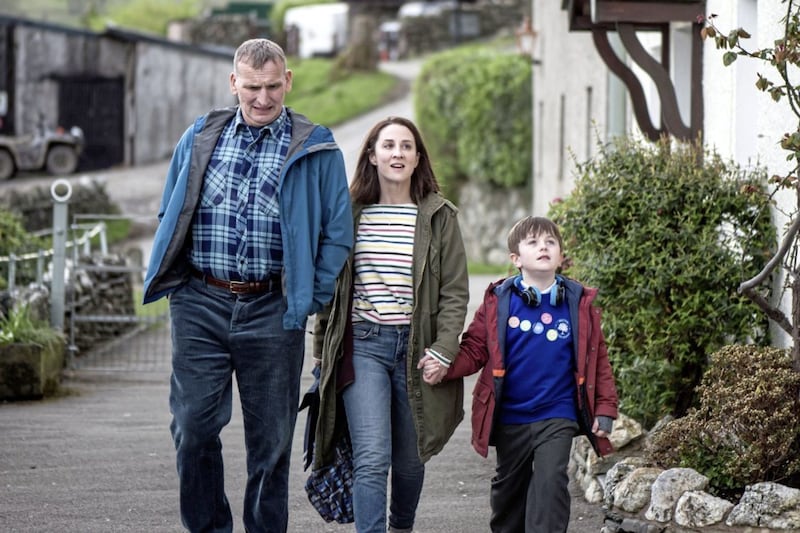AUTISM is a complex disorder, a spectrum of degrees, and in the BBC television serial The A Word, young Joe, an attractive, determined nine-year-old, brings home to viewers his frustrations and those of his parents.
There are three main areas within autism – social communication, social interaction and social imagination – and Joe has issues with all of these. He can’t carry on a conversation, he’s not happy in company and he has no appreciation of danger or of the outcomes of his actions.
Many of us have difficulty in saying the right thing at the right time, feel awkwardness walking into a crowded room, are not confident enough to chat to strangers and can take awful risks at times without appreciating the dangers.
But we’re talking here about something much more serious. The majority of us get through life OK but there are more than 30,000 individuals affected by autism in Northern Ireland and for them and their families it makes a devastating difference to their lives and the lives of those around them.
This is an incurable, lifelong developmental condition that affects how people perceive the world and interact with others. Over 7,000 schoolchildren here are diagnosed as having autism, with many more waiting for diagnosis – waiting time is at least 35 months.
As one parent told me, once diagnosis had been given, all they were left with was a list of organisations to turn to for help. Organisations such as Autism NI, which supports individuals and their families and provides vital services for the 30,000 people affected by Autism throughout Northern Ireland.
Its Helpline receives more than 3,000 calls each year, and the Family Support Team co-ordinates work with over 6,000 families, offering information and advice and importantly, early intervention services to those with a newly diagnosed child informing parents what to expect.
In one case a seven-year-old decided to wash the cat and so followed her mother’s routine and put it in the washing machine. Thankfully it was rescued before the worst happened.
I’ve noticed that autistic children are logical in their thinking – there’s reason to their behaviour, though perhaps only known to them.
I was visiting a home and popped into the little girl’s bedroom to say hello and was told to get out, in no uncertain terms. I sat on the stairs feeling sad and rejected. Suddenly this pretty little figure appeared beside me and said: "I love you Auntie Anne," then was off again into her own world. I suddenly realised I’d encroached into that world – she didn’t dislike me, she was just being honest.
What are the signs?
One father explained that his son wasn’t reaching the typical developmental milestones; he wasn’t progressing with language or play. To him, repetition was important, be it lining up his coloured bricks over and over again or getting upset when a promise was cancelled.
His life required routine for him to cope.
“We noticed he was hypersensitive to noise, he couldn’t cope with sensory overload. The bright lights in supermarkets, the noise and the crowds would frighten him.”
So what happens?
“When he gets disturbed I hug him tight and he likes the pressure. I carry a little printed card saying: My child is not having a tantrum, he is autistic, please be patient. I’ve never used it.”
Typical symptoms include a lack of eye contact, disruptive behaviour and, most of all, difficulty in forming relationships. This is why Autism NI has sessions for schools, employers and parents offering support, especially in education. Think of the trauma of moving from primary education to secondary, for example.
Orla Kelly, training and development officer, organises sessions to explain the intricacies of autism and how best to work with those with this condition – as simple as slowing down speech, using simple words allowing time for processing and responding, and if speech interaction is difficult, writing it down.
There are many practical suggestions to allow the young person at school or at work to manage to the best of their ability, especially important as across Northern Ireland one in 40 children (aged four-15) in our schools is diagnosed as having autism, a 67 per cent increase in the past five years and figures continue to rise.
It’s a shattering diagnosis to hear.
“It was difficult enough when my daughter was little,” was another comment. “I could lift her out of situations. She’d run through a store knocking things over, shouting at the top of her voice and making a real exhibition of herself. People were looking at me chasing her and trying to calm her all the time, tutting and criticising me for not controlling her or punishing her for bad behaviour. In those days I didn’t explain. I just got out of the place as soon as I could.”
A kind word is all it takes to be of support.
“As she’s grown older and stronger I can’t do that so we don’t go shopping anymore.” And that’s sad because there’s a chance such outings will help develop social interaction and give pleasure to the child. Instead they go running to burn up energy.
Every person is different – low-functional autism being the most severe, where children have extreme behaviours and are unable to live independent lives. Moderate requires assistance but also means some degree of independence.
They will find challenges with communication, often prefer their own company to the exclusion of others and again repetition is evident and distress when their normal routine is disrupted. Other children are wary and it takes a toll on parental relationships.
High-functioning autism is the mildest form of this disorder and many will live and work normally. Their use of language and conversations can be difficult but they are less likely to display antisocial behaviours. Many develop an interest in a single topic and excel at their chosen subject.
Much more to be said and for professional information www.autismni.org, advice line 028 9040 1729, and please read Welcome To Holland, an essay by Emily Perl Kingsley.








